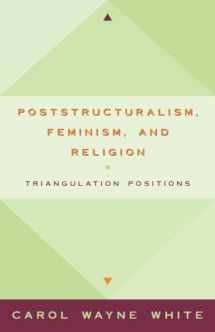
Poststructuralism, Feminism, and Religion: Triangulating Positions
Book details
Summary
Description
In this brilliant assessment of the relation between poststructuralism and feminism to current religious thought, philosopher of religion Carol Wayne White convincingly demonstrates that postmodernist continental and feminist philosophies―far from being antithetical to religious concerns―in fact enrich our understanding of religion and its relevance to debates about contemporary culture. By triangulating these three unique perspectives on culture she expands prevailing views of cultural criticism and opens up the discussion to new creative solutions that arise from the intersecting interests of poststructuralist, feminist, and religious studies.Dividing her work into three major sections, White first summarizes the major developments in postmodern and feminist thought in a lucid and refreshingly jargon-free exposition. Next she focuses on two major thinkers in poststructuralist religious scholarship―Sharon Welch and Mark C. Taylor―showing how their work incorporates, on the one hand, Foucault's political critique of power and, on the other, Derrida's textual deconstruction. Finally, she looks at feminist critiques of culture with special emphasis on feminists' contributions to the study of religion.She concludes by highlighting the important role of religious valuing in providing an impetus to action and pragmatic social change. Religion can and should move us beyond the stalemate of postmodern critiques with their often-nihilistic undertones and fruitless academic posturing. Poststructuralism, Feminism, and Religion succeeds in elucidating what it means to think and act religiously in the postmodern era.


We would LOVE it if you could help us and other readers by reviewing the book
Book review



